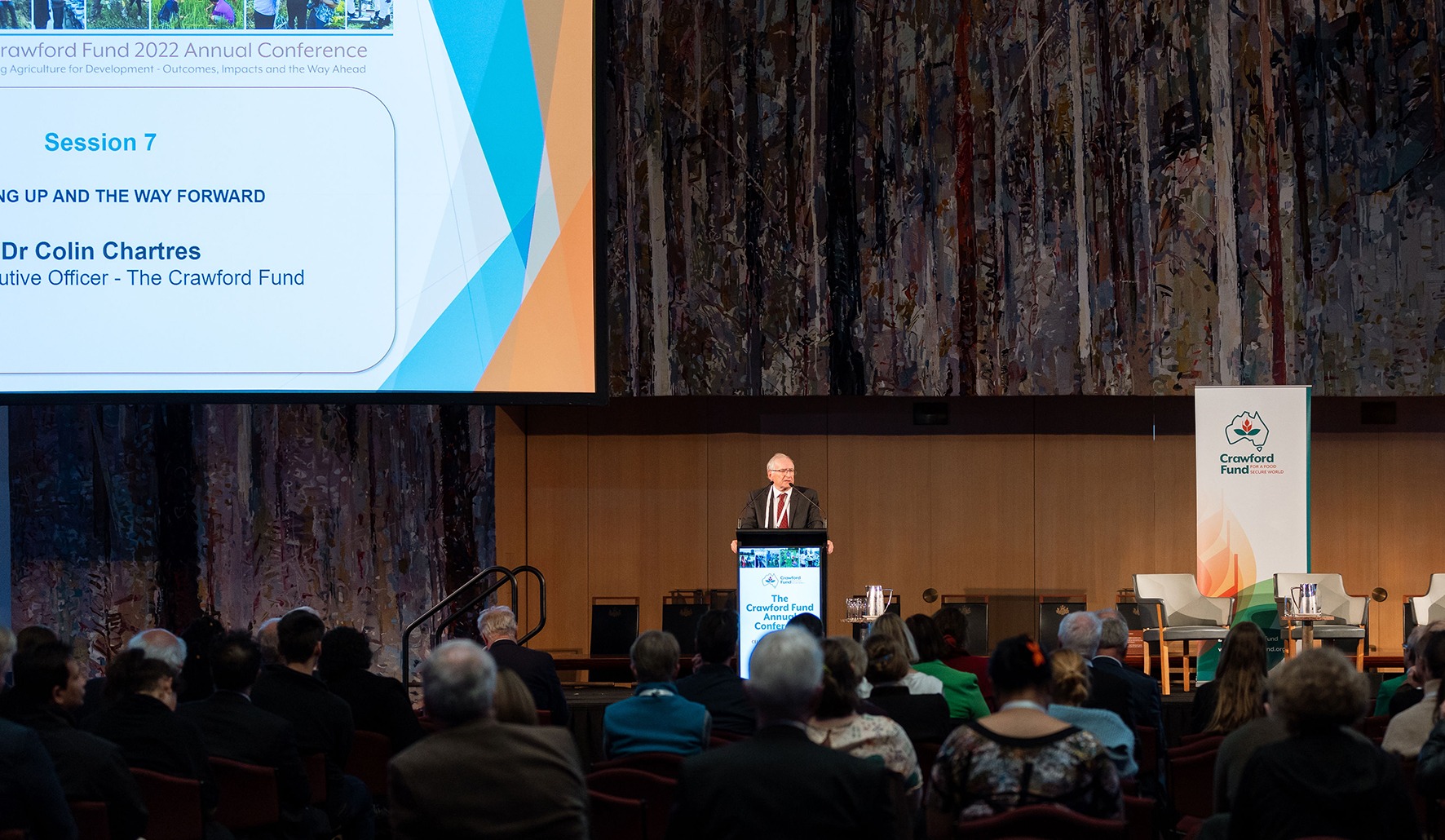

Water, food and peace
October 21, 2022

Dr Colin Chartres, our CEO, has two presentations coming up. One is to the Africa-Australia Universities Network on Meeting Food Security Challenges Over the Next 20 Years to be made on 27 October and it will highlight threats to food security and stress the importance of training in research leadership and management as a way of helping R&D achieve greater impact.
The other is the Royce Abbey Memorial Oration* on 23 October. Titled Water, Food and Peace, Colin will argue that food security promotes peace and will demonstrate the critical links between water and food security and social unrest, and what we have to do to maintain production and access to food for all.
Colin is optimistic that, based on knowledge, science and goodwill, we can achieve a food secure world and one in which agriculture is seen as efficient and in harmony with the environment.
However, Colin notes that ongoing investment from governments and the private sector is needed to achieve food security and environmental goals and that Australia is a leader in this area based predominantly on the role of the Australian Centre for International Agricultural Research and supported by the Crawford Fund.
Colin’s full Royce Abbey Memorial Oration is here.
The address is focused on food security and the developing world, and he notes that it would be easy to be pessimistic with respect to both feeding a growing global population and the negative impact on the environment of increasing food production. However, for those of us in the developed world who would like to contribute, he suggests the following:
- Reducing food losses and waste: There are many ways that food losses can be reduced between paddock and plate, particularly in developing countries. These include provision of improved storage facilities on-farm, and better transportation to market. However, the critical issue with respect to food waste is that in western countries we throw out over 200kg per person of edible food per year. The majority of this ends up in land fill and thus contributes to greenhouse gas emissions. We have to become less wasteful! Using even a small proportion of this wasted food will save water, nutrients and greenhouse gas emissions.
- Reuse and recycling: On an individual and local basis we need to be recycling food waste as compost. We also need to be treating and recycling waste water for reuse in agriculture and the environment rather than pumping it out to sea.
- Don’t assume organic agriculture is the answer: yes, it can be a good choice for some, but yields are often lower that in systems using artificial fertilisers and it takes considerable skill.
- Use water wisely: this goes without saying particularly in drought years.
- Practise sustainable intensification of agriculture: this means growing more off less area and making sure that water productivity is high, and thus reducing pressure on the environment. This also involves closing yield gaps.
- Eat sustainable diets: western diets are highly consumptive of resources including water and nutrients. By reducing our intake of meat and dairy products even marginally and eating more wholegrains, vegetables and fruit, we can reduce environmental pressure and also help ourselves by becoming healthier!
- Encourage agricultural innovation including sequestering carbon in soils, electrify machinery to reduce fossil fuel use, and regenerate degraded soils, water and vegetation.
- Support sensible policy making mechanisms that encourage wise use of our natural resources, and community participation in their management and ongoing investment in agricultural R&D at home and abroad.
*The inaugural Royce Abbey Oration was presented by Royce Abbey at the first International Conference of Rotary District Peace Communities held on 10 September 2000. It established a tradition of addresses by prestigious speakers focusing on the concept and practice of peace.




 0
0